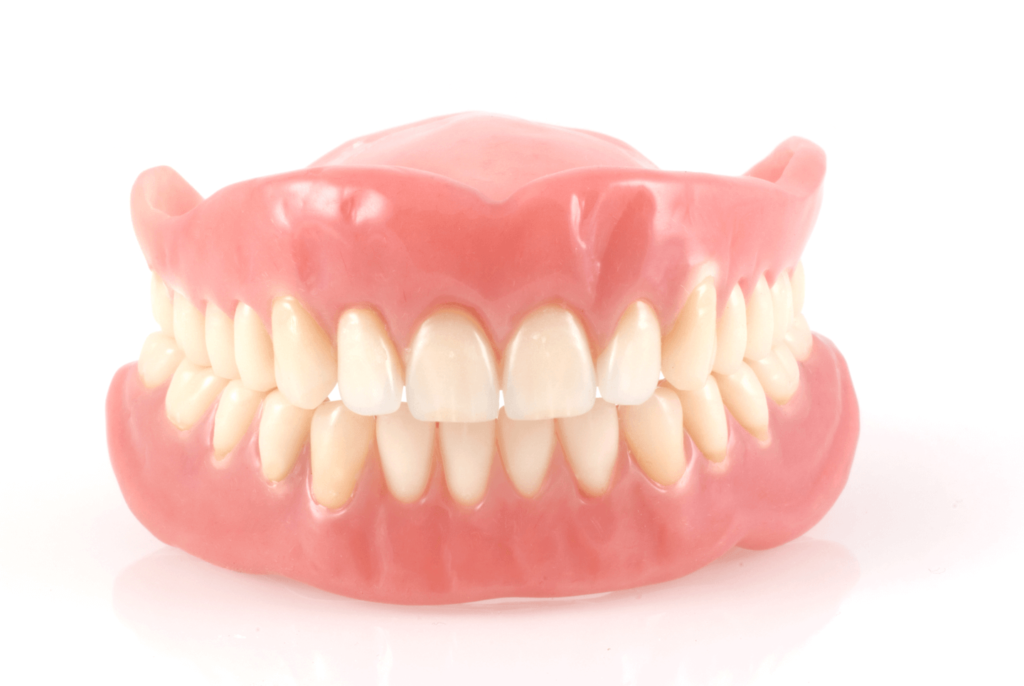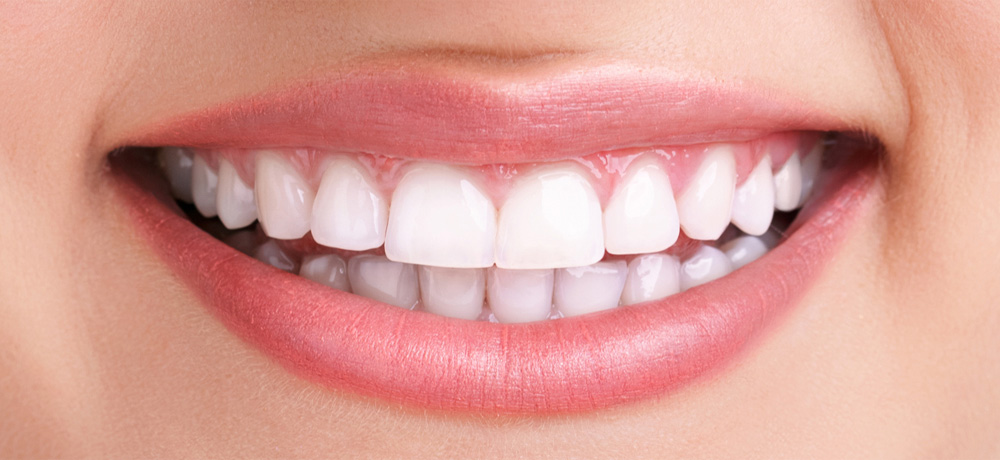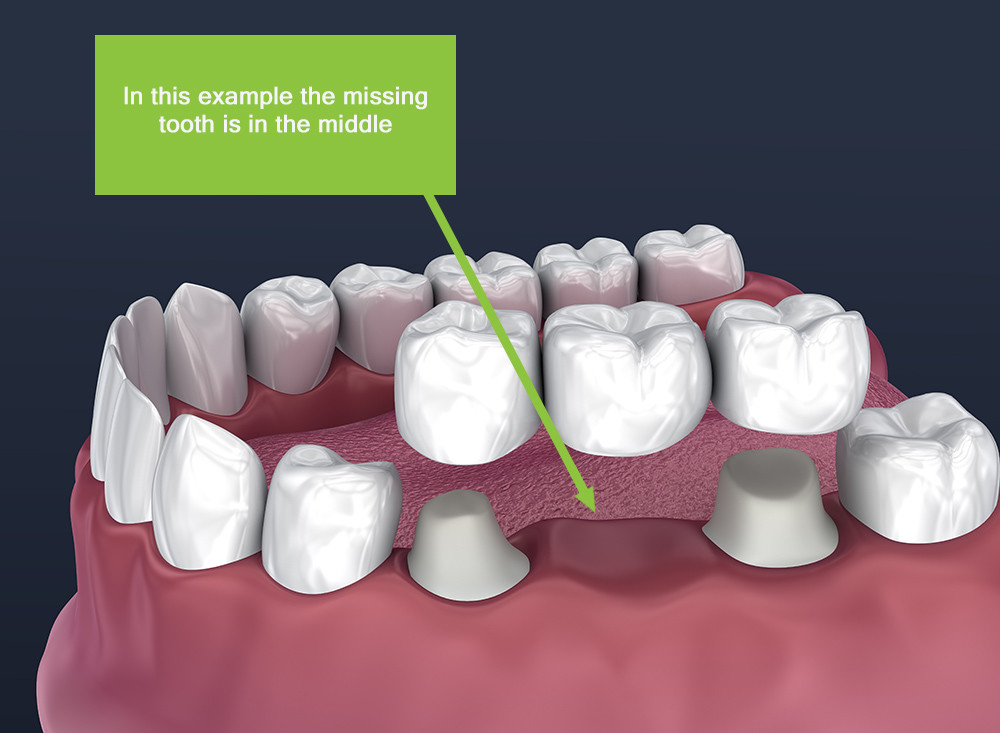Dentures are used to replace weak or missing teeth. They are custom-made replacements and are removable as per the patient’s requirements. They can serve as a complete or partial set of teeth to replace missing teeth in one or different parts of your mouth. Most patients take time adjusting to the idea of dentures and their feelings in the mouth. Even with a natural-looking appearance, they don’t feel the same as original teeth. Nonetheless, today’s dentures are more comfortable than ever.
There are different types of dentures used by dental clinics in Brampton, Toronto and the GTA. Need help with a new denture in Brampton, contact Mayfield Dental Clinic today.
When you visit a dentist in Brampton or the GTA, you must discuss the different types of dentures to understand which one is suitable for you. The conventional type rests on the gum. Depending on the condition of your natural teeth, your local dentist dentist can attach dentures to them. On the other hand, a surgically fixed foundation inside your jawbone is used to attach implant-supported dentures.
Major Types of Dentures
Full Dentures
When you replace the entire set of natural teeth with dentures, it is known as full dentures. For the upper mouth, dentures have a flesh-colored acrylic base to cover the roof and gums. With this, all your false teeth firmly fit on the upper part. Additionally, for the lower jaw, the acrylic base is given a horseshoe shape, so that it does not cover the tongue.
Before fixing full dentures, the dentist removes any existing teeth. The dentist will take care of any veneers that you may have. Your jawbone will take time to adjust to this change and reshape itself over time.
Sometimes, to achieve a proper fit, dentists wait for a few months before taking measurements of the patient’s mouth and ordering a custom-made denture. Since the patient will not have any teeth at this stage, the dentist may decide to take measurements before removing the remaining teeth. The dentist might also immediately place a replacement, allowing the patient to be comfortable during the time. Afterward, when the jawbone has reshaped itself, the dentist relines the dentures to get a proper fitting.
Partial Dentures
If you only have some teeth missing, you need partial dentures. Partial dentures are different from dental bridges. There are different ways of attaching partial dentures to your natural teeth. The most common technique used for this purpose is metal clasps that hold on to the natural teeth. One of the other ways that the dentist can use is partial dentures, that bond with precision attachments. These attachments are less visible, just like Invisalign.
Dental crowns on the existing teeth can also help with the fitting of partial dentures. Crowns along with precision attachments help to improve the fitting of partial dentures.
Implant-Supported Dentures
Implant-supported dentures take the help of dental implants to securely attach the removable dental appliances with the jawbone. Any dentist in Brampton and Caledon can surgically fit the implants in one or more visits, and they remain in place for a long period. Please note, this is a regular cosmetic dentistry procedure, and you don’t need the intervention of an emergency dentist.
One of the advantages of implant-supported dentures is their stability over other denture types. Conventional dentures slip out of place, particularly in the lower jaw, however, implant-supported dentures are stable. Generally, implants are attached to the front of the jaw.
There are two types of implant-supported dentures – ball-retained and bar-retained. In the case of ball-retained dentures, also referred to as stud-attachment dentures, some sockets grip onto ball-shaped connectors. These connectors exist on the implants. For bar-retained dentures, a thin metal bar helps with the attachment of two to five implants in the jawbone. Attachments like clips help to place the denture to this bar.
Those who wish to opt for implant-supported dentures need healthy gums. They must follow good oral hygiene. Besides, they must have enough jawbone.
Benefits of Dentures
Most people know why it is beneficial to have dentures. The replacements help you enhance your appearance and enjoy a confident smile. In the absence of a denture and your natural teeth, the facial muscles sag, making you look even older. With dentures, you can eat, speak, and smile more comfortably.
Who Needs Dentures?
The need for dentures varies from person to person. If you’ve lost all your natural teeth and are unhappy with your smile, dentures are the best solution for you. Moreover, if your natural teeth aren’t letting you chew easily, you need artificial teeth. However, if your teeth are strong yet only appear pale and stained, you can opt for teeth whitening. Such a dental cleaning procedure helps to restore the shine and color of your teeth.
If you only have a few decayed teeth that are not fixable, you don’t need to attach dentures. You can undergo tooth extraction and continue to leave with your natural set of teeth.
Oral Care Routine for Dentures
Just like regular teeth, dentures also need care and maintenance. If you don’t care enough for your denture, you could end up ruining its appearance and functionality. As a result, you will have to spend more to get a new denture.
Here are some tips that Mayfield Dental recommends for you to take care of your denture:
- Brush the dentures: If you brush your dentures daily, it will help get rid of food and dental plaque. This way your dentures will not even get stained.
- Avoid drying of dentures: When you remove the dentures, put them in a denture cleanser soaking solution. Alternatively, you can put them in plain water. This ensures that the dentures do not dry out. Remember not to use hot water and it can cause the dentures to warp.
- Care for your mouth: Use a soft-bristled brush to clean your tongue, palate, and gums every morning. Wear the dentures after you have thoroughly cleaned on the inside. Brushing improves circulation in the tissues and eliminates all plaque.
- Schedule an appointment with the dentist: If you face any trouble with the denture such as cracking, breaking, chipping, or size issues, consult the dentist. Don’t try to adjust them on your own. You may be damaging it even further.
A wide range of dentures is available today. This means that you no longer need to suffer from the problems of chewing or the appearance of the mouth. Your local dentist at Mayfield Dental can offer the right advice to help you meet your needs.
Contact Mayfield Dental today. We have options to help you. You can book a free consultation online or you can reach us at 905.840.0225. For all emergency dentist walk-ins in Brampton, we are located at 3068 Mayfield Rd. Unit #6 Brampton, ON, L6Z 0E3. You can also find us on Google Maps here: https://g.page/mayfield-dental




